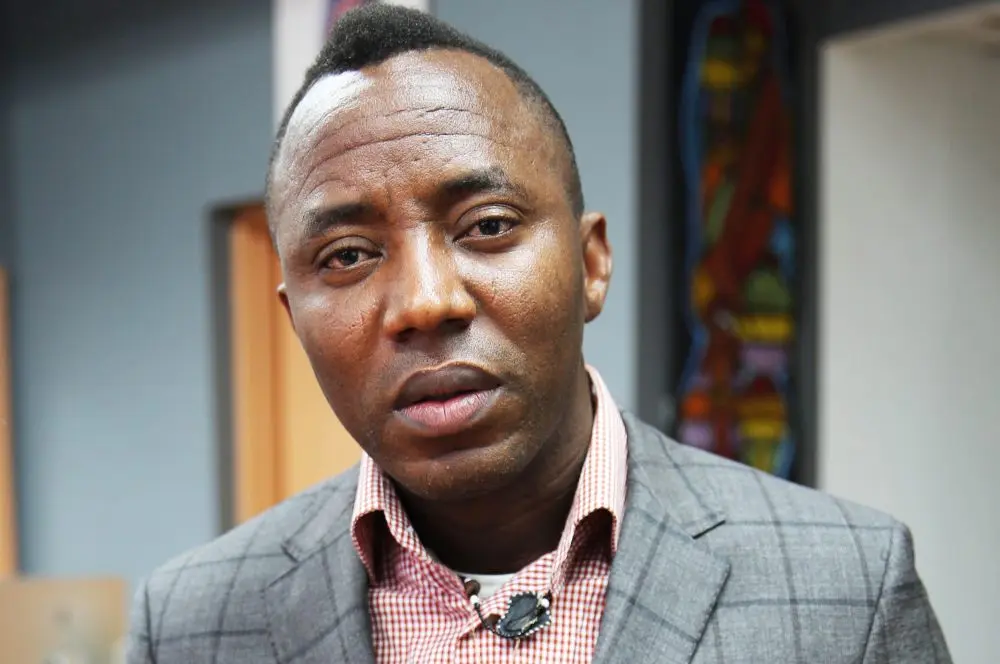In a recent controversy that has stirred public discourse, political activist and founder of Sahara Reporters, Omoyele Sowore, has criticized former Lagos State governor and All Progressives Congress (APC) stalwart, Bola Tinubu, over the disbursement of N8,000 cash palliatives to Nigerians during trying times.
Sowore’s scathing remarks highlight the inadequacy of the cash distribution, equating it to a mere N53 per day, which falls significantly short of addressing the pressing needs of the Nigerian populace. This article delves into the background of the controversy, analyzes the arguments put forth by Sowore, and examines the broader implications of such limited cash palliatives.
Background of the Controversy
The COVID-19 pandemic has had a severe impact on the Nigerian economy, with millions of citizens facing economic hardships and struggling to make ends meet.
In response, several individuals, organizations, and government bodies initiated palliative measures to alleviate the suffering of vulnerable Nigerians. Bola Tinubu, a prominent political figure and potential presidential candidate, announced a cash palliative scheme, aiming to provide financial relief to those in need.

Sowore’s Critique
While the intention behind Tinubu’s palliative initiative was undoubtedly commendable, Sowore expressed his dismay over the inadequacy of the monetary assistance provided. In a social media post, he criticized Tinubu for offering a paltry sum of N8,000 as cash palliatives to Nigerians. Sowore calculated that this amount, when spread over the duration of the COVID-19 lockdown, equated to a meager N53 per day for each recipient.
Ineffectiveness of N8,000 Cash Palliatives
Sowore’s argument resonates with many Nigerians who believe that a daily allowance of N53 is grossly insufficient to meet their basic needs, especially during a prolonged crisis like the pandemic. The high rate of inflation and rising cost of living in Nigeria have eroded the purchasing power of the naira, making it increasingly challenging for individuals to afford essential commodities, healthcare, and education.
Furthermore, Sowore pointed out that providing cash palliatives alone is not a sustainable solution. While temporary relief is undoubtedly helpful, a more comprehensive approach is needed to address the underlying socio-economic issues plaguing the country. Investments in infrastructure, education, healthcare, and job creation are necessary to uplift Nigerians from the cycle of poverty and dependence on palliative measures.
READ ALSO: Tinubu Declares State of Emergency on Food Security
Political Implications
Sowore’s critique of Tinubu’s cash palliative program also raises questions about the motivations behind such initiatives, particularly in the context of upcoming elections. Critics argue that such schemes may be used as political tools to garner support and influence public opinion. The timing of Tinubu’s cash palliative announcement, coinciding with his potential bid for the presidency, adds fuel to these speculations.
Moving Forward
To truly address the challenges faced by Nigerians, it is essential for politicians and policymakers to adopt a long-term, sustainable approach. While cash palliatives can provide immediate relief, they must be coupled with holistic measures that address the root causes of poverty and inequality. Investments in education, healthcare, infrastructure, and job creation are crucial for improving the standard of living and creating opportunities for all Nigerians.
What You Should Know
Sowore’s criticism of Bola Tinubu’s N8,000 cash palliatives sheds light on the insufficiency of such measures in meeting the needs of the Nigerian population.
By highlighting the low daily amount of N53 per recipient, Sowore has sparked a larger conversation about the need for comprehensive and sustainable solutions to address poverty and inequality. It is crucial for policymakers to focus on long-term investments that will empower Nigerians and uplift the nation as a whole, rather than relying solely on short-term relief measures.



































































